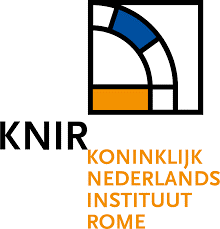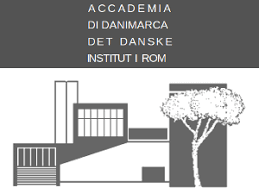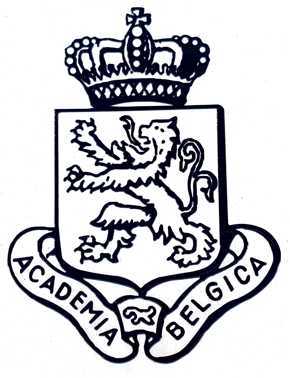Practices of Privacy: Vestiges of Dialogue and its Places
Call for Papers
Deadline 11 September 2022

Niccolò dell’Abate, Eros and Psyche, 1552-71, Detroit Institute of Arts
Dialogue has always been the backbone of knowledge. The Greeks and Romans used dialogue and banter as tools for philosophical explorations. During the early modern period, dialogue was employed to communicate and kindle knowledge. Leonardo da Vinci’s conversational efforts during his lifetime (1452–1519) were disregarded by other scientists because he essentially lacked the official credentials of formal education. In 1659, John Evelyn wrote to his colleague Robert Boyle about his vision for the ideal institution for the exploration of natural knowledge. He described a place where intellectuals could observe and discuss natural phenomena. Beyond the material needs for research, it should include a routine of shared meals and designated conversation hours. But sometimes dialogues about knowledge did not obtain the desired results.
Early modern sources frequently use the dialogue format as a vehicle to spread knowledge. Think, for instance, of artistic or scientific manuals or exchanges between correspondents of the Republic of Letters. Dialogues of knowledge are frequently connected to places, such as artists’ discussions in cafés or salons, humanist discussions in academies, academic debates in universities, or oral transmission of knowledge between masters and apprentices of all kinds, from printers to metalworkers. Knowledge, therefore, depends on conversations located in places to be created, transformed, and disseminated, but the social mores and physical boundaries of the places where these dialogues occur shape which aspects of the created knowledge are shared or kept private and how they are altered during transmission.
Where can we find privacy in dialogue, and what do we mean by privacy? Derived from the Latin privatus, privacy is an elusive concept that has been defined in many different ways. Broadly, we understand privacy as “a human phenomenon that is to do with experiences of withdrawal, boundary drawing, and control of access” (Birkedal Bruun, 2021). As such, we resist any simple definition and rather seek to explore the meaning of expressions of this phenomenon for different people in different cultures and times. What makes a conversation private may have to do with practical, personal, professional or religious needs or desires of the interlocutors, the place where it takes place, or cultural norms, values and practices.
Although the vast majority of private conversations in the past have left no record, historians can use a variety of methods to gain insights and understanding of the concerns and interests of early modern interlocutors. These methods can shed important light on the contribution of private dialogues to the exploration and creation of knowledge.
Private conversations of the past rarely leave traces, and many times historians must analyse their sources against the grain to look for vestiges of these exchanges - or to find hints of privacy within recorded ones.
Following up the 2020 event Practices of Privacy: Knowledge in the Making, which launched the “Practices of Privacy” symposia, the 2022 edition will explore how dialogue can be a mediator for the development of ideas in all kinds of areas of human interest during the early modern period (c. 1400–1800). We are interested in how dialogue, privacy, and space intersect in the history of knowledge. Researchers in historical privacy studies, art history, visual studies, literary history, history of science, technology, anatomy, and medicine are encouraged to apply. We welcome abstracts based on (but not limited to) the following themes:
- Knowledge exchanges in private: verbal and written strategies;
- Artistic and visual representations of private dialogues, conversations and knowledge exchange;
- The iconography of private conversation;
- Dialogue in literature: locating privacy in literary sources;
- Dialogue as a genre of knowledge transmission;
- Dialogue rhetoric;
- Didactical dialogue;
- Conflict dialogue;
- Spaces for private conversation;
- Architecture and design for private conversations;
- Historical, ideal, or invented places relevant to dialogue;
- Privacy in formal and informal conversations;
- Cryptography;
- Sign language;
- Epistemology;
- Internal conversations;
- Knowledge of conversation: the art of communicating and the role of privacy;
- Research methodology for privacy studies;
- Experience and experiment;
- Material circumstances of dialogue.
This hybrid symposium forms part of the Symposium Academiae Belgicae, and will be held over three days from 30 November until 2 December 2022. Presential sessions will take place in Rome at three venues: the Academia Belgica, Royal Netherlands Institute in Rome, and the Danish Academy. Online participation will also be possible.
Please apply to participate by sending an abstract of 300 words, accompanied by a two-page CV via this form. The deadline for abstracts is 11 September 2022.
Organizers: Annemie D.G. Leemans (University of Antwerp), Jelena Bakić (University of Porto), Liam Benison (University of Porto), Natacha Klein Käfer (University of Copenhagen), Oskar Jacek Rojewski (University Rey Juan Carlos), Pieter Martens (Free University Brussels) and Jessica Roitman (Free University Amsterdam).
 |
|

|
 |

